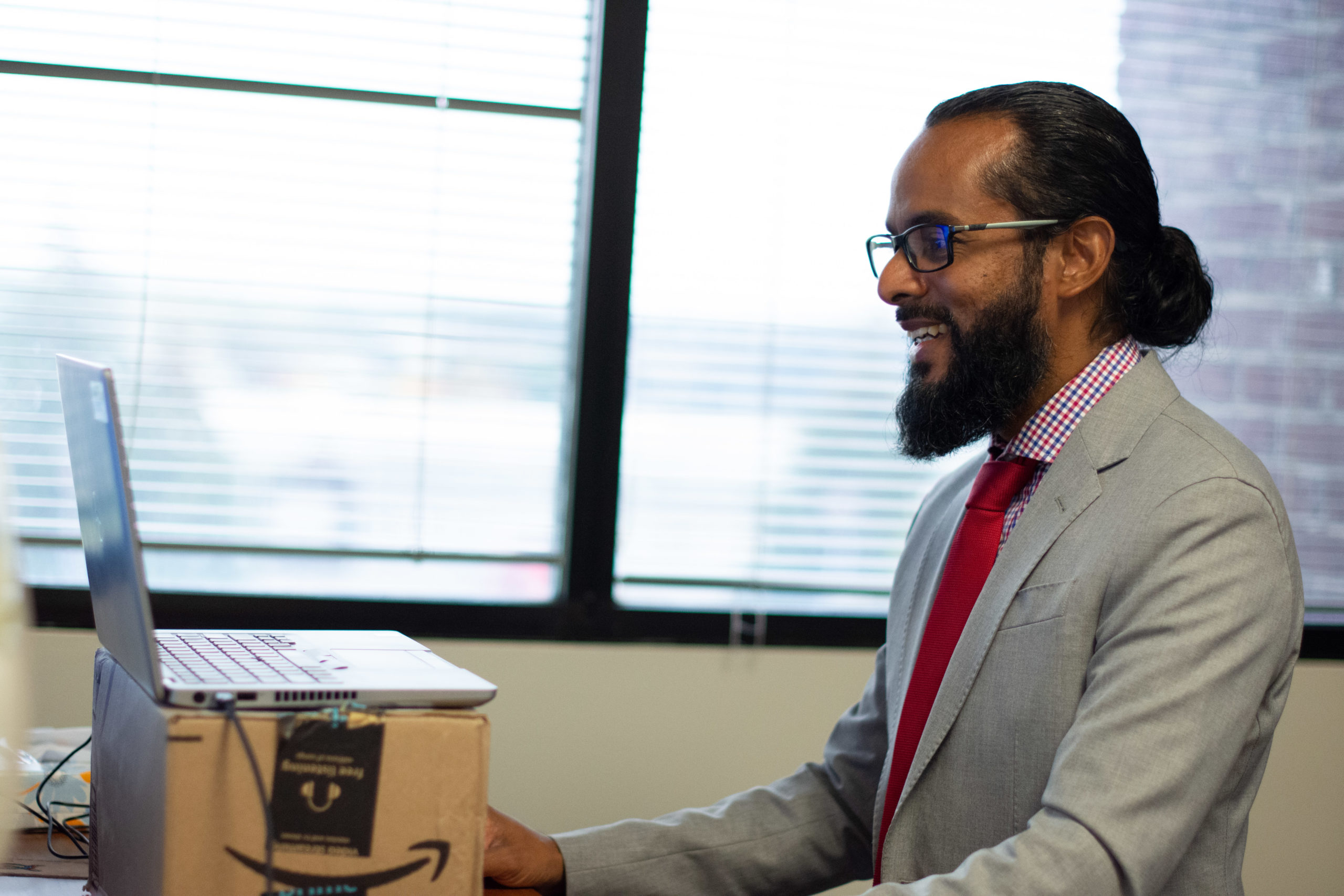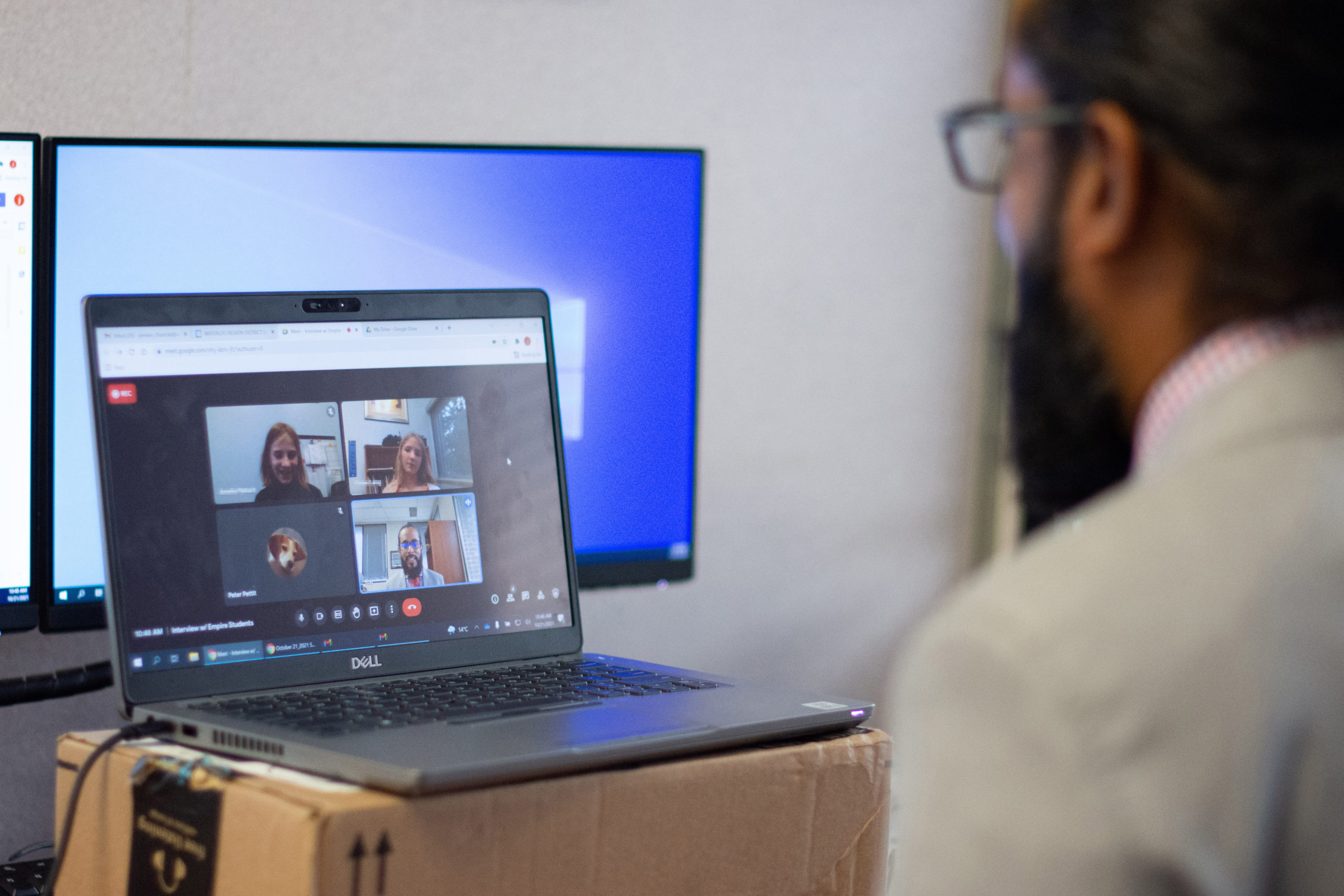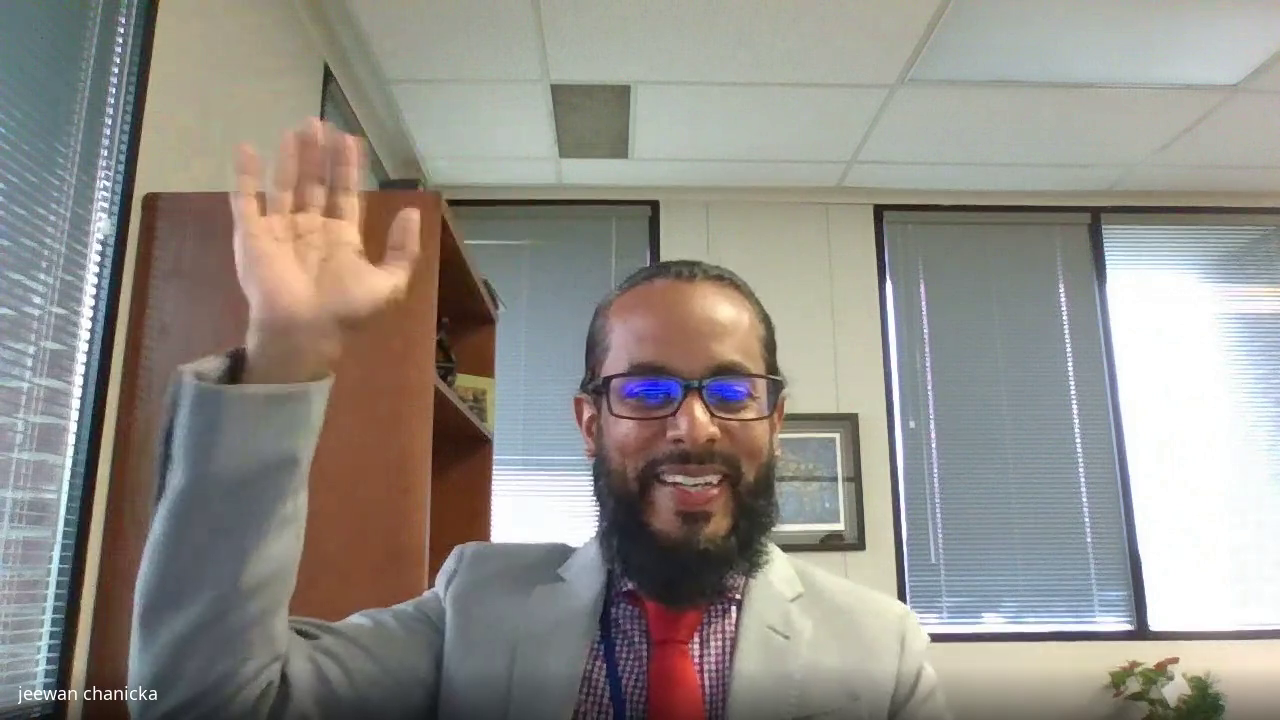November 8th, 2021
For Amelia and Vivian, two Grade 6 students from Empire Public School in Waterloo, it was an opportunity to ask the Director of Education their burning questions. For the Director of Education jeewan chanicka, it was an opportunity to hear directly from Waterloo Region District School Board (WRDSB) students, about what matters to them.
This wasn’t the first time that Amelia and Vivian had brought their questions to those in positions of leadership. They recently spoke with Tim Louis, member of Parliament for Kitchener-Conestoga, about the environment and what the Canadian government is doing to protect and preserve it for all those who rely on it.
Touching on a variety of hard-hitting issues, from the drinking water crisis, to addressing climate change on a global scale, the students demonstrated they weren’t afraid to ask the tough questions to those in positions of power. With this experience in their back pocket, they prepared their list of questions for the director.
The three came together virtually, along with their classmates and teacher, Peter Pettit, on Thursday, October 21. The virtual meeting was held so that the two students could interview chanicka for a school newspaper article. Amelia had the first question, asking chanicka to share “…a little bit about yourself and the journey that has led you to where you are today.”

“I come from a really mixed family,” chanicka shared, adding that this includes a variety of cultures and faiths, including Hindu, Muslim and Christian.
His journey to the role of helping to lead the WRDSB included challenging times. This included periods where he was unhoused and relied on food banks. chanicka expressed gratitude for these experiences, though, because of where they have brought him, and the opportunity they have created to support students in their learning and self-discovery.
“I want to do my best to help all of you be the best that you can be,” said chanicka.
Vivian was up next, asking chanicka: “As the new Director of Education for the Waterloo Region District School Board, what is your vision for schools and students moving forward and where do you see the greatest overall need for change?”
The public education system as it currently exists, chanicka explained, is a system from a different era.
“We’re using infrastructure that is from the 19th century for schools, today, in this century,” he said. “That doesn’t make a lot of sense to me.”
The challenge, for chanicka, is to rethink, and change public education to help students reach their fullest potential. A key factor is ensuring that schools are safe for everyone to show up and be their whole selves.
“When that happens, the learning becomes easy,” said chanicka. “People feel appreciated for who they are.”

As the strategic planning process to achieve this is assembled, chanicka is committed to welcoming student voice and feedback in this process.
“What I want to do is to really hear from students and then think about how we…make some real changes with that feedback,” said chanicka. “I think that you have a lot more answers than the adults do.”
Vivian was pleased to hear of the focus on including student voices in a meaningful way. “It’s really special that you’re giving us a voice.”
Amelia, focusing on Indigenous people in Canada, asked “how would you like to see schools acknowledge and celebrate the contributions of the people on whose land we currently live?”
Beginning by acknowledging the land on which our schools are located, and where our learning takes place, is governed by a treaty partnership, chanicka explained. We have an obligation to uphold that treaty beyond a territorial acknowledgement.
“It’s not enough to just say a land acknowledgement,” said chanicka. “What does that actually mean?”
For him, the focus needs to be on building relationships with those who are Indigenous in our communities, and acknowledging that we need to do better.
“It’s not okay that we can drink water out of our taps, and we have heat in our homes and that isn’t being afforded to the people who shared the land with us,” said chanicka. “Those are really important things for us to think about.”
For their final question, Vivian asked chanicka, “If a brand new young teacher were to approach you and ask you what you feel is the most important thing in teaching, what would you tell them?”
As part of preparing students for this world, and their future in it, chanicka sees opportunities for students to focus their learning on answering big questions that are connected to real world issues.
“How do we take that knowledge and use it in a way that’s going to help all of you be able to go out and change the world?” asked chanicka.
Learning in this way will better equip students to approach the problems and questions they will face as they enter the working world in the future, and ultimately, shape their own futures, too.
“You’re going to be the leaders,” chanicka told the students.

As they concluded their chat, Amelia and Vivian reflected on the opportunity to speak with chanicka, and ask questions about issues that were important to them and their peers.
“It was a great opportunity to get to talk to the director of education,” said Vivian with a smile. “My mind is still in shock!”